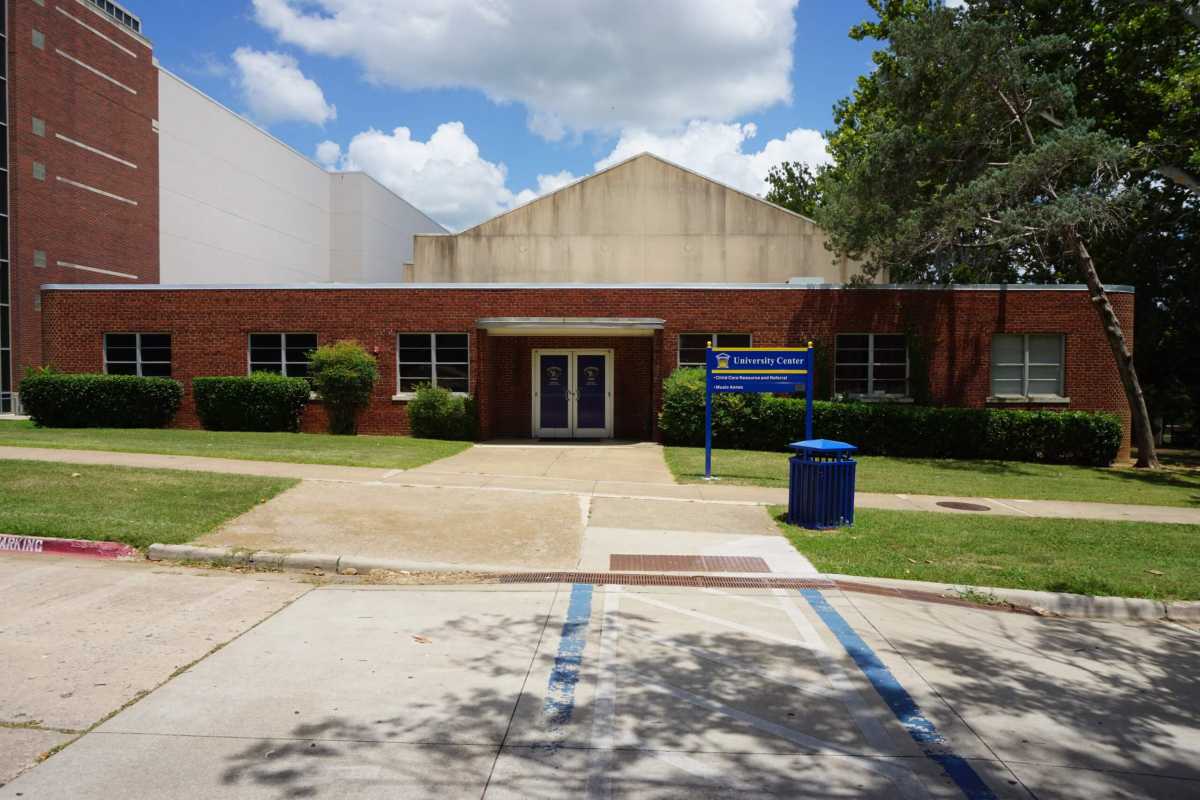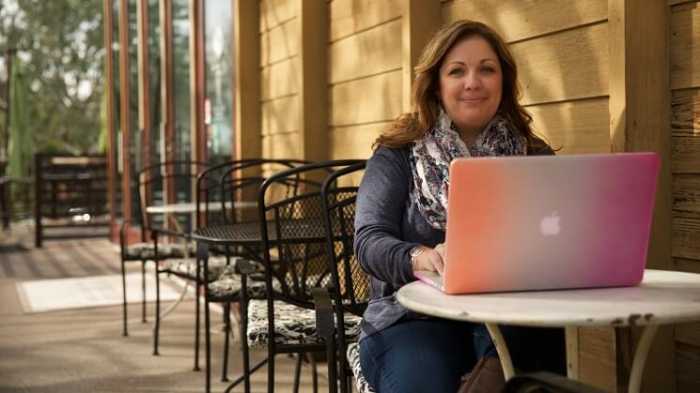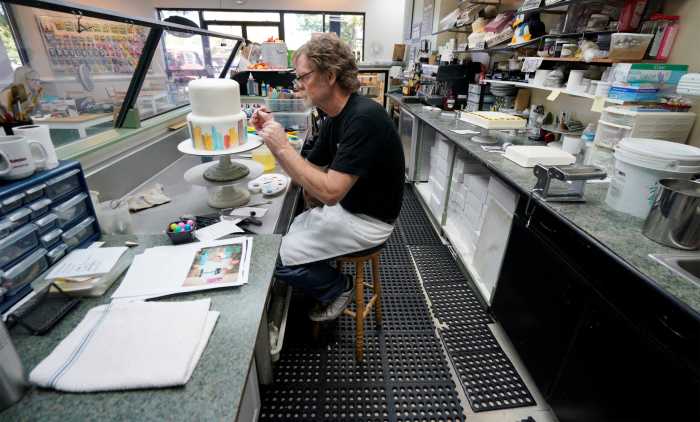A three-judge panel of the Denver-based US Court of Appeals for the 10th Circuit has overruled a decision by US District Judge Robin J. Cauthron, who had denied reinstatement to a tenured faculty position at Southeastern Oklahoma State University (SOSU) to Dr. Rachel Tudor after a jury determined that the university’s denial of tenure and subsequent dismissal of Tudor violated Title VII of the Civil Rights Act of 1964. Tudor, who is described in the opinion by Senior Circuit Judge David Ebel as “a transgender woman who is a dual citizen of the United States and the Chickasaw Nation,” will also be entitled to a recalculation of the damages owed her under the court’s order.
It is very unusual for a federal court to order reinstatement with tenure of a university professor who has been denied tenure by her institution, even when discrimination has been found to have tainted the decision, since courts generally take the view that they do not have the academic expertise to determine whether a professor’s scholarship and job performance would support a grant of tenure. But this was an unusual case, judging by the evidence about tenure decisions at SOSU, in which a faculty committee of her peers had determined that Dr. Tudor’s scholarship and service did qualify her for tenure, but were overruled by the university’s president, apparently on the recommendation of the vice president for academic affairs, who was shown to be biased against Dr. Tudor. Professors testified that they could not recall another case in which the university president had overruled a tenure committee vote that was endorsed by the candidate’s department chair.
Tudor began working as a tenure-track English professor at SOSU in 2004, prior to transitioning, according to the opinion. About three years later, she told SOSU’s Human Resources Office that she planned to transition over the summer, and she returned for the Fall 2007 semester presenting as a woman, Rachel Tudor.
Dr. Tudor applied for tenure in the fall of 2008, but the committee voted against tenure and she withdrew her application. Evidently, she hadn’t accumulated sufficient published scholarship at that point, but she renewed her application in the Fall 2009 semester, by which time two of her articles had been accepted for publication in peer-reviewed academic journals, she had presented her work at a regional academic conference, had served on several faculty committees, and had published a book of poetry. This time, the five-member faculty committee vote 4-1 in favor of her application, which was endorsed by the English department’s faculty chair.
Under SOSU’s tenure process, the application would go to the dean of arts and sciences, then to the vice president for academic affairs, then to the president, and finally to the governing board of the Regional University System of Oklahoma (RUSO), of which SOSU is a part. According to the court’s opinion, RUSO normally rubber-stamps the president’s recommendation, and the evidence shows that the president at that time normally followed the recommendation of the vice president for academic affairs. Arts and sciences dean Lucretia Scoufos, vice president Doug McMillan, and president Larry Minks all recommended denying the application. Before the president’s action, Dean Scoufus met with Tudor and told her that if she withdrew her application, she could reapply in the future. Under normal tenure rules, there is a deadline by which a tenure-track faculty member must achieve tenure or be dismissed from their position, but Tudor was several years short of the deadline. Tudor insisted on maintaining her application, and it was denied with no explanation by the president.
Tudor filed grievances over the denial, and was informed by McMillan that the president’s rationale was “deficiencies in scholarship and service.” Tudor then filed discrimination complaints with the faculty’s “appellate committee,” SOSU’s affirmative action officer, and the US Department of Education. The Department of Education referred her complaint to the Equal Employment Opportunity Commission (EEOC), since higher education faculty tenure decisions are not covered by Title IX of the Education Amendments Act, but are covered by Title VII of the Civil Rights Act of 1964.
While these complaints were pending, Dr. Tudor applied for tenure again in Fall 2010. The new chair of the English department, who had been the dissenter in the faculty tenure committee, began assembling a faculty tenure committee to consider her application, but stopped when vice president McMillan sent a memo to him and to Dr. Tudor stating that the administration would not allow Dr. Tudor’s reapplication for tenure “in the best interests of the university,” even though SOSU’s academic policies and procedures manual did not forbid such reapplications.
As a result of the administration’s refusal to allow her to reapply, Dr. Tudor was not able to achieve tenure by the deadline and her contract was not renewed. It took her more than a year to find a non-tenure-track job teaching English at a Texas community college, at a lower annual salary than she had been receiving at SOSU. She filed a discrimination and retaliation claim with the EEOC, which referred it to the Department of Justice (DOJ). DOJ filed a lawsuit against SOSU in March 2015, alleging sex discrimination and retaliation in violation of Title VII. Dr. Tudor intervened in this lawsuit as a co-plaintiff, adding a claim of hostile working environment to those asserted by DOJ.
In August 2017, after the changeover from the Obama to the Trump Administration, DOJ settled with SOSU on the basis that SOSU would make policy changes aimed at reducing discrimination at the university, leaving Tudor alone to pursue her discrimination claims without the government’s assistance.
District Judge Cauthron rejected a motion for summary judgment by SOSU and sent the case to trial before a jury. The jury received evidence about transphobic remarks made at various times by vice president McMillan. The plaintiff’s theory of the case was that although nominally the final administrative decision was up to the president, he had essentially delegated that task to McMillan. Ultimately, the jury was persuaded that McMillan’s bias tainted the decision and ruled in Tudor’s favor as to discrimination and retaliation, but the jury rejected the hostile environment claim. The jury must have found the evidence of discrimination and retaliation overwhelming, because it voted to award Dr. Tudor a “lump sum” of $1.165 million in damages to cover backpay and compensation for physical and emotional distress.
But what Tudor really wanted was to get her job back at SOSU with the tenure that her faculty colleagues had voted to award her, not least because the Texas community college position had not worked out and her contract there had not been renewed after several years. She filed a motion for reinstatement, which Judge Cauthron denied, finding that hostility between Tudor and SOSU made it inadvisable. Cauthron also cut down the damage award.
Title VII imposes a $300,000 cap for compensatory and punitive damages for an employer of the size of SOSU, but there is no cap on back pay (compensation for pay lost due to the discrimination between the time of discharge and the time of trial, less compensation earned elsewhere during that time) or front pay (compensation to cover a reasonable period of time from the jury’s verdict until the plaintiff could find a new job). The judge cut down the damage award to $360,040.77.
Both sides appealed. The 10th Circuit panel totally rejected SOSU’s arguments on appeal, while ruling that Judge Cauthron should have awarded reinstatement with tenure as well as a larger amount of damages.
While the statutory cap limits compensatory damages, in this case the court found that Judge Cauthron’s calculation of the back pay and front pay awards was clearly erroneous, reflecting not only a mistaken understanding of the financial data about Dr. Tudor’s compensation at SOSU but also incorrect conclusions about the appropriate front pay.
What was most significant about the ruling, however, was the order for reinstatement with tenure. Brushing aside SOSU’s argument that the court should not substitute its judgment for the University’s judgment in evaluating qualifications for tenure, Judge Ebel responded that the statute itself makes reinstatement a preferred remedy in a discriminatory discharge case, although of course a trial judge has discretion in fashioning a remedy. In this case, the appeals panel found that Judge Cauthron’s rationale for denying reinstatement failed to take account of several key factors. The faculty committee had voted in Tudor’s favor on her tenure application, and all the administrators involved in denying her application were no longer at the university, clearly dissipating the likelihood of hostility preventing Tudor from functioning as tenured faculty member. Furthermore, academic tenure would protect her job security, and the job of a tenured academic is focused on relationships with her students and immediate faculty colleagues, not with administrators.
There is almost always hostility during hard-fought lawsuits running over many years (in this case, over a decade), but if the mere possibility of further hostility were to be given significant weight, it would make the statutory preference for reinstatement meaningless.
SOSU could file a motion for reconsideration en banc, but the 10th Circuit’s current composition does not make it likely that such a motion would be granted. Half of the active judges on the ten-member circuit court were appointed by Barack Obama, with Trump only getting two appointments and the three other judges having been appointed by George W. Bush. As a member of the three-judge panel, Senior Judge Ebel, a Reagan appointee who wrote the opinion ordering Tudor’s reinstatement, would get to vote on the motion as well. (Senior judges are semi-retired and ordinarily don’t get to vote on such motions unless they served on the panel that decided the case.)
Tudor will be the first out transgender tenured professor at SOSU when the case finally runs its course, but first it has to return to the district court for a recalculation upwards of her damage award along the lines mandated by the circuit’s order.
Tudor’s lead attorney is Jillian T. Weiss, an out transgender advocate based in Brooklyn, with another out transgender lawyer, Ezra I. Young, whose practice is also based in Brooklyn. They were assisted by local counsel Brittany M. Novotny of National Litigation Group PLLC, Oklahoma City, and attorney Marie E. Galindo of Lubbock, Texas. Amicus briefs were filed in support of Tudor’s appeal by the National Women’s Law Center, Washington DC, and Lambda Legal’s Atlanta office.



































